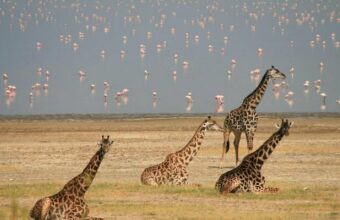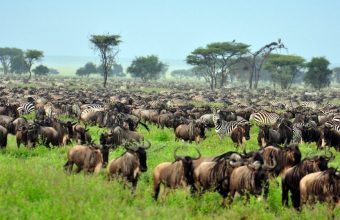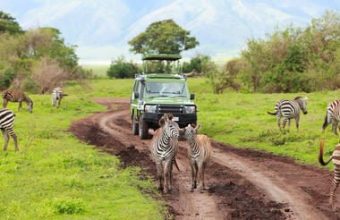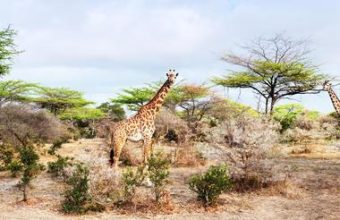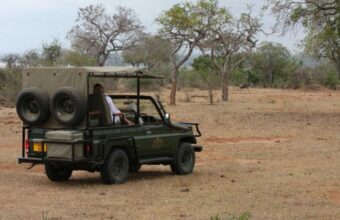The Best Time For Safari In Tanzania
When to go on safari in Tanzania
Quick guide—When to go on safari in Tanzania:
Best months: June, September, October
Worst months: March and April
Peak tourism season: July and August
Best weather: June to October
With the exception of the rainy months of March and April, Tanzania is a great safari destination through most of the year.
The dry season – June to October – is the most popular and best for wildlife sightings, but January and February also see a break in the rains.
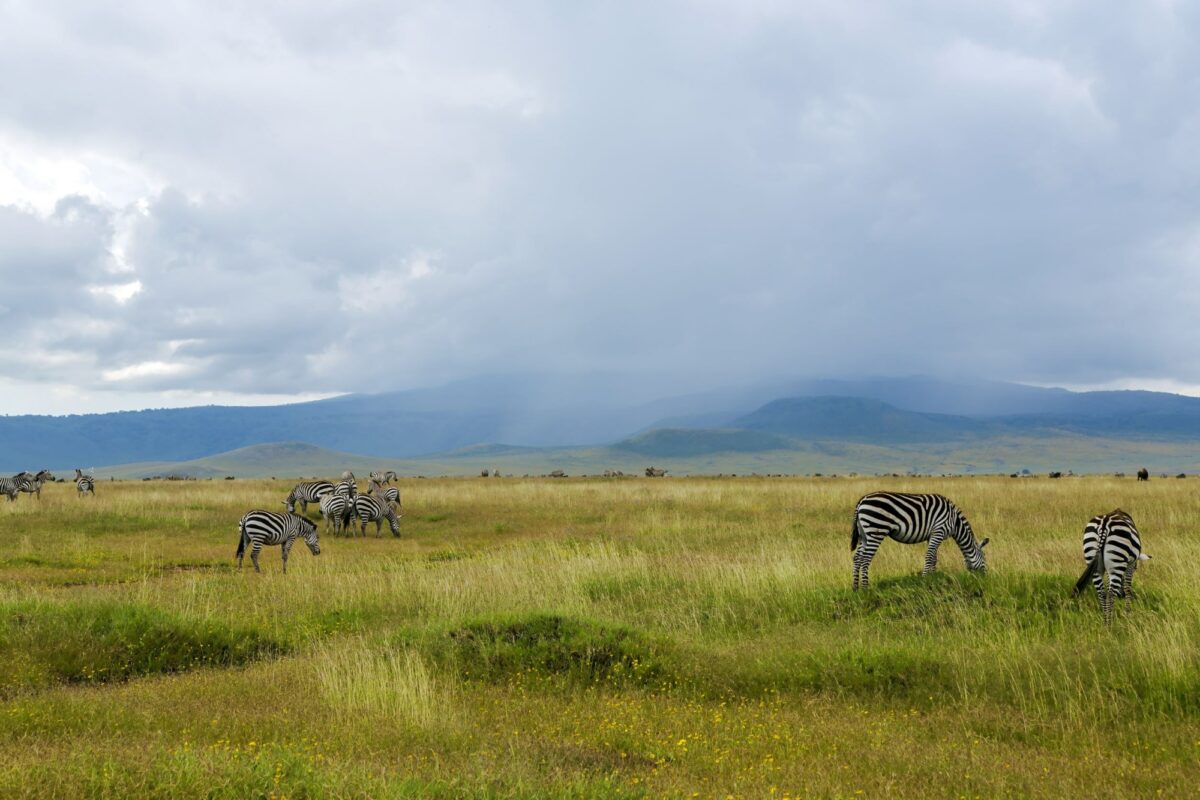
The rainy season arrives at the Ngorongoro Crater Conservation Area
Featured Trips
Best time for Tanzania safari
Month to month weather & seasons
Safari month to month
January and February are generally hot, dry months with a break after the 'short rains' in November and December. Birdwatching is outstanding, with the arrival of migratory birds from Europe in November/December. January and February are also peak months to climb Mount Kilimanjaro, with clear and relatively warm conditions.
March and April bring what are known as the 'long rains' and are the wettest months. While this may not be the best time to be on safari in Tanzania, there are fewer crowds and low season prices usually apply for the camps that remain open.
The rains can sometimes continue into May, but visibility is good and safari crowds have yet to arrive.
By June, the rains have passed and the temperature is usually a little cooler. With many lodges and tented camps not charging high-season rates until July, this can be an excellent time to go on safari in Tanzania.
July and August are peak safari season, especially in the Serengeti – it’s dry, which is ideal for seeing wildlife, and it’s also when the bulk of the river crossings take place (they can start as early as June and finish as late as October).
In Zanzibar, it’s dry from July to October; the winds pick up too, which is ideal if you’re keen on sports like windsurfing.
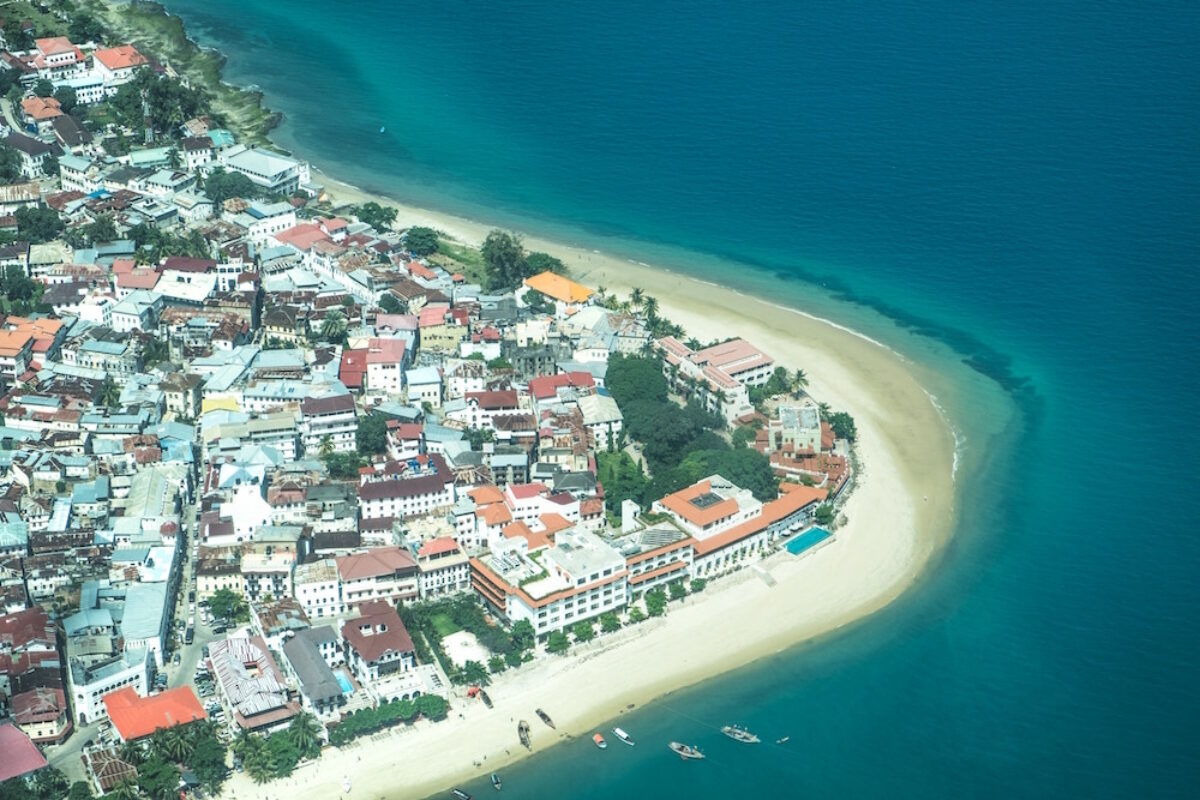
July to October are good months to visit Zanzibar for some beach time
September and October have many of the perks of peak season, including dry conditions across the country, but there’s the added advantage of fewer crowds.
By November, the short rains cut through rising temperatures, there’s lush vegetation and the arrival of migratory birds.
December can be hot and a bit rainy, but it’s also the beginning of the Kilimanjaro climbing season – you’ll likely have fine conditions and escape the lower-altitude heat.
Events and holidays
There are over 120 different tribes in Tanzania and so there’s an array of events and notable dates throughout the year.
Islamic festivals, Eid, for instance, are celebrated throughout the country, but particularly in Zanzibar.
February’s Sauti za Busara, held in Zanzibar’s Stone Town, is a pan-African music festival – one of the largest in the region.
The Kilimanjaro Marathon takes place in Kili’s foothills in late February or early March.
If you’ve developed a taste for Tanzania’s ubiquitous nyama choma (barbecued meat), head to Dar es Salaam for the ‘bbq extravaganza’ Nyama Choma Festival – it’s held every four months, so check out the next event on their Facebook page.
Tanzania’s premier arts events, the Festival of the Dhow Countries and the Zanzibar International Film Festival, are held in Zanzibar over two weeks in July.
The town of Bagamoyo, on the coast of mainland Tanzania, hosts the dynamic Karibu Music Festival in November.

